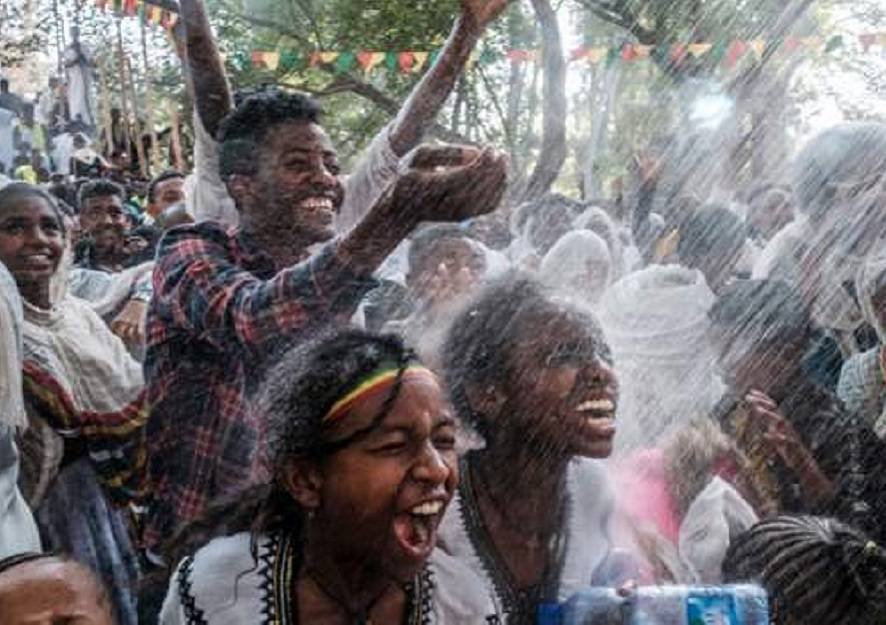January is one of the best months to visit Ethiopia. Despite the warm weather and low rainfall, Ethiopians also celebrate Christmas, which they call Ledet or Genna, in January. While the rest of the world celebrates Christmas on December 25, Ethiopians and other Coptic Christians celebrate Christmas on January 7 because they have a different calendar.
The Gregorian calendar celebrates Christmas on December 25, but Ethiopians still retain the ancient Julian calendar in which Christmas falls on January 7 (of the Gregorian calendar.) And then 12 days after their Christmas comes Timkat or Epiphany, which commemorates the baptism of Jesus in the River Jordan.
In the local calendar, it falls on January 17 through 19, and a three-day celebration involves processions (usually with tablets —symbols of the Ark of the Covenant), singing, and dancing. Christianity is the biggest religion in Ethiopia; 43% of the population is Orthodox Christian and this means that many Ethiopians mark the occasion of Timkat.
On the day before Timkat, each church takes its tablet, a model of the Ark of the Covenant that according to tradition contains the 10 Commandments, and wraps it in cloth and silk. The most senior priest from each church dressed in their religious robes and carrying crucifixes and umbrellas, then leads a procession to the river or bath, carrying the tablets on their heads.
Sometimes, musicians playing traditional trumpets, or imbibe, lead the way. This symbolizes what is said in the Bible that trumpets were played when the Ark of the Covenant was being moved. Spiritual singers also chant and clap along to traditional praise songs. The priests and some other worshippers then keep vigil over the tablets during the night.
The following day, which is when the main celebrations take place, starts with mass in the early hours of the morning until around 7 am. People usually wear white clothing and cover their heads with scarves. After mass, speeches are made by some church leaders, and the water is blessed. Worshippers then submerge themselves in the water, renewing the vows they made at the baptism. This major part of the celebration is what they call a reenactment of the baptism of Jesus in the River Jordan.
After the reenactment of the baptism of Jesus, people mainly eat Injera, also known as a flatbread. Doro Wat, an Ethiopian spiced chicken dish, is also served during Timkat. Coffee, which is often freshly roasted and prepared, is what many participants drink.
Then comes the final day or the third day of Timkat during which the tabots which had been carried to the water are taken back to the churches in another procession similar to the earlier one. This activity winds up the celebrations. It is said that people or tourists who want to see the most striking activities of Timkat should go to the celebrations in Ethiopia’s royal city of Gondar located in the north of the country. Emperor Fasilides in the 17th century built castles, palaces, and a royal bath in Gondar. And it is this royal bath that is filled once a year at Timkat.
This year’s Timkat, which fell on January 19, saw worshippers gathered at the Fasilides Bath that was filled with water so the baptism can be re-enacted. Timkat is a joyous gathering, but this year, not everyone was in a celebratory mood considering the conflict in the country that has so far killed thousands.

